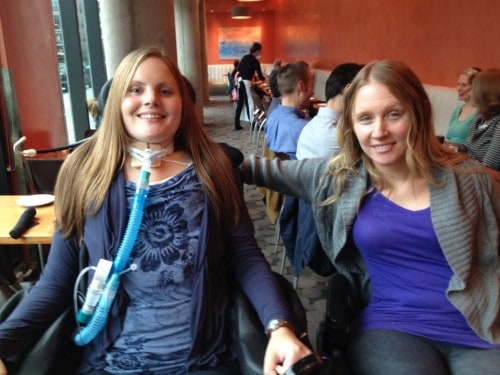
 We all like to think we know exactly what people are thinking when they look at us, but in reality we’re wrong a lot more than we realize. Being misunderstood happens to people all the time, but when you add in a disability, being misread is as common as dirt on a playground.
We all like to think we know exactly what people are thinking when they look at us, but in reality we’re wrong a lot more than we realize. Being misunderstood happens to people all the time, but when you add in a disability, being misread is as common as dirt on a playground.
It’s frustrating when nondisabled people see us and jump to conclusions, assuming they know exactly what our disability is and our limitations. I call these people “disability know-it-alls” and they drive me batty.
Others feel pity when they see us — a large number of people, in fact. It’s not easy for them to avoid this sentiment when they see a wheelchair user. This is the default emotional response for them, and I understand that, but people need to retrain their brains. It is time.
If we’re active and you see us out living our lives, please don’t feel sorry for us.
When kids see us, they’re curious most of the time — pure innocent curiosity, versus the pity adults often feel. Kids just want to know why we are disabled; nothing more, nothing less. But adults can feel an entire spectrum of emotions when it comes to seeing someone with a disability. While curiosity, fear and pity reign supreme, I’ve run across people who feel anger toward wheelchair users simply because they don’t like disabled people.
Oftentimes the worst reactions are from people who came from different countries and are not accustomed to seeing people disabilities. They think we are cursed and are afraid of it rubbing off on them. And I can’t forget the “crisis mode” response when people see someone with a mobility impairment. They think we must be in dire need of help at all times.
If you have a disability, what do you think when you catch people looking at you or staring at you in public? Are you used to it by now and completely unfazed, or do you still let it get to you? Some people with disabilities relish these occasions as an opportunity to educate the nondisabled, hoping to show them we can live “normal lives” too.
My friend, Jenni Taylor, a vent-dependent quad who I lunch with often, especially loves the opportunity to educate the public. “When they see me in the public ‘doing my thing’ and interacting, whether it be shopping, eating out or just hanging out with my family, they might see a different perspective,” she says. “Hopefully it lets them know that I live my life in every way possible and am not ‘sheltered’ or ‘hiding myself’ from the world. I enjoy inspiring others and showing that all things are possible.”
While we can’t control what nondisabled people think when they see us, the biggest thing we can do is inform the public that our lives are not as sad as they assume. That way, when they do see us out and about hopefully their minds will be able to wander to the more positive side of things, and not dwell on the negative.
Are you nondisabled? What do you think when you see someone with a disability?
Are you disabled? What do you think when you catch someone looking at you?
Support New MobilityWait! Before you wander off to other parts of the internet, please consider supporting New Mobility. For more than three decades, New Mobility has published groundbreaking content for active wheelchair users. We share practical advice from wheelchair users across the country, review life-changing technology and demand equity in healthcare, travel and all facets of life. But none of this is cheap, easy or profitable. Your support helps us give wheelchair users the resources to build a fulfilling life. |


I greatly appreciate your addressing all the issues you do. The basic issues someone with VI faces are similar to those faced by someone with SCI.
I see two lovely vibrant young women and my first thought was that you both look happy and that I wish my 15 year old ventilated quadriplegic could be as happy as you both do. My daughter Chelsea made a decision to discount the staring and assume that people look because she is so awesome. You are so right that young kids look without prejudice or assumption because their knowledge or imagination of the perceived challenges is limited. They just see awesomeness and amazing wheelchairs. I hope you can be open to compassion though and the idea that an offer of assistance does not necessarily always patronize or insult you. If you believe that the world sees you as lesser or weaker but constantly keep referencing and reinforcing it, then you may have to consider that you are in fact part of the problem. Change the dialogue and in the words of Gandhi: Be the Change you wish to see